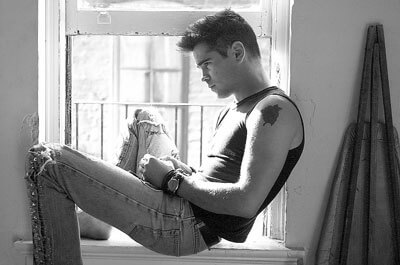A second Michael Cunningham novel makes it to the big screen
Like most love triangles, though, something has to give. Even though Bobby, Jonathan, and Claire come to occupy a house in the country together after Clare gives birth to Bobby’s baby, something’s got to give. At one point, Jonathan runs off to Phoenix and feels like Bobby’s displaced him as the son in his own family. Later on, it’s Clare who’s feeling like a third wheel. But nobody is playing anyone off the other here, struggling for dominance. Only Bobby feels completely at ease in this ménage, thinking it’s the most natural thing in the world. He comes across as naive, but really, he’s just that happy to be living in this big beautiful world despite his personal losses at an early age.
In addition to a story that’s about as mellow as a threesome can get in the beginning of the AIDS era, there is a tons of great acting. Sissy Spacek is wonderful as the mother who takes in Bobby and gets stoned with him and her son regularly. The teenage Jonathan, played by Harris Allan, is as nerdy here as his alter ego, the HIV-positive teenage Hunter on Queer as Folk, is sassy, world weary, and abrasive. The bonding between the introverted outsider and the hip, orphaned Bobby seems very real. Ryan Donowho’s brief portrayal of Carlton, Bobby’s doomed brother, is sweet and loving and sets the tone for Bobby’s character throughout the film.
Dallas Roberts takes the teenage nerd Jonathan into adulthood. Despite his discovery of just the right 1982 gay uniform (ubiquitous leather jacket, with-it haircut, and stylish eyewear), Jonathan’s insecurities are still evident as is the thing he’s got for his sometimes lover-adopted brother Bobby, despite all his tricking. The scene in which the adult Jonathan and Bobby dance on a New York City rooftop is one of the most intimate scenes between two men you have ever seen on film. Not sexy or romantic, but natural and intimate. The only person who seems a bit constricted in this tale of free and easy romance is Robin Wright Penn in her portrayal of Clare. Penn’s never looked this stern or haggard before. It’s not clear if Clare is supposed to be a decade older than the two men, but ultimately, the evident discomfort suits the character.
The real revelation here is Colin Farrell. His performance in “A Home at the End of the World” seems a whole acting category above what he’s done so far—action-movie villains, sex symbol in The Recruit, and slippery customer trapped in the Phone Booth.” There are no gimmicks in this movie and he certainly doesn’t phone it in. Of course, what little we see of him in the upcoming trailers for his movie about Alexander the Great looks ridiculous. If his career turns out to be less than stellar, it’s this role that will stand out.
It also helps that the story manages to capture the spirit of the 1960s, 1970s, and early 1980s without falling into the trap of exploiting the kitschier aspects for all they are worth. Director Michael Mayer’s done a great job of bringing Michael Cunningham’s novel to the big screen. Lets hope it’s remembered at Oscar time next year.


































